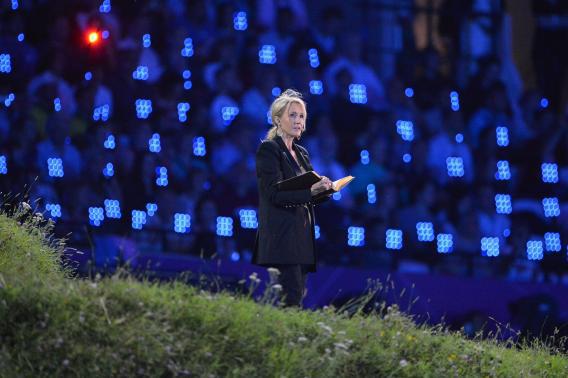This week The New Yorker published a big profile of the usually reticent J.K. Rowling in advance of her new book for adults, The Casual Vacancy, which comes out Thursday.
You should read the whole story. Really! But if you’re pressed for time, here are a few things of note that Ian Parker gleaned about Rowling and her latest creative effort.
The Casual Vacancy is really, really for grown-ups. The novel says that the cleavage of one character “radiated little cracks that no longer vanished when decompressed,” and tells us about a young boy who has “an ache in his heart and in his balls.” A woman visiting a housing project sees “a used condom glistening in the grass beside her feet, like the gossamer cocoon of some huge grub.” There is a “miraculously unguarded vagina,” which I can only assume has already inspired at least a dozen works of fan fiction about Harry Potter and the Miraculously Unguarded Vagina.
Rowling explains that these sorts of subjects are one of the benefits of leaving fantasy behind. A crucial difference between fantasy and realism, she says, is that you can’t make fantasy too raunchy. “You don’t have sex near unicorns,” she says, “It’s tacky.” (Of course, unicorns can only be tamed by virgins anyway, so one wouldn’t expect to find them near sex even if the juxtaposition were perfectly couth.) Rowling calls the unicorn/sex prohibition an “ironclad rule,” summoning up visions of medieval chastity belts.
Speaking of rules, while the world of Harry Potter often felt almost chaotic, Rowling herself comes off as very tightly controlled. She wears heavy foundation (and fake eyelashes). She guards her privacy fiercely. A brutal self-editor, she thinks her stories owe their popularity to a sense of order beneath the exuberance. “Children…were walking into a place where they knew the rules, or there were rules to be discovered,” she says.
And, as the Independent reports, Rowling expects the same discipline from reviewers, many of whom only receive galleys of her work after signing elaborate non-disclosure agreements. According to Parker, before the London Times interviewed the author in 2003, it had to negotiate a contract stipulating “precisely when the interview would occur and who would be the interviewer and photographer; how and where it would be advertised and promoted in the paper and on radio,” and Rowling was granted “full approval of captions, headlines, straplines, line drawings, graphics, headings, advance trails, quotes and photographs.”
Parker, on the other hand, was able to wrangle a bit more freedom. An editor at the New Yorker told me that the magazine “didn’t grant any form of editorial approval to Rowling, and there weren’t any constraints on Parker’s questions.” The magazine “did agree not to publish the article before this week, as The Casual Vacancy is embargoed.” Parker does provide more details about the book than were available before, alluding, for instance, to its grim, “Thomas Hardy finale.” Poverty—the kind that threatened but never quite engulfed the author as a single mom in the ’90s—looms large.
He also explains the title: A “casual vacancy” is the term for a government seat that has fallen vacant through death or scandal. In the novel, it describes the office that once belonged to Barry Fairbrother, an English council member who disappears in the opening pages. But for Rowling, the phrase also gets at the empty spaces in the lives of the book’s characters. And it suggests death—in Rowling’s words, “the casualness with which death comes down,” stripped of “fanfare … pathos or grandeur.” The strongest parts of The Casual Vacancy, according to Parker, concern its teenaged characters, who, like Harry Potter, display a “teen-age instinct to adopt, and find comfort in, the families of others.”
How is Harry doing today? Rowling suspects an adult Harry would be psychologically disturbed, given his harrowing past. “If Harry really had gone through everything he went through,” she says, “he probably wouldn’t be mentally healthy enough to survive anywhere, would he?”
